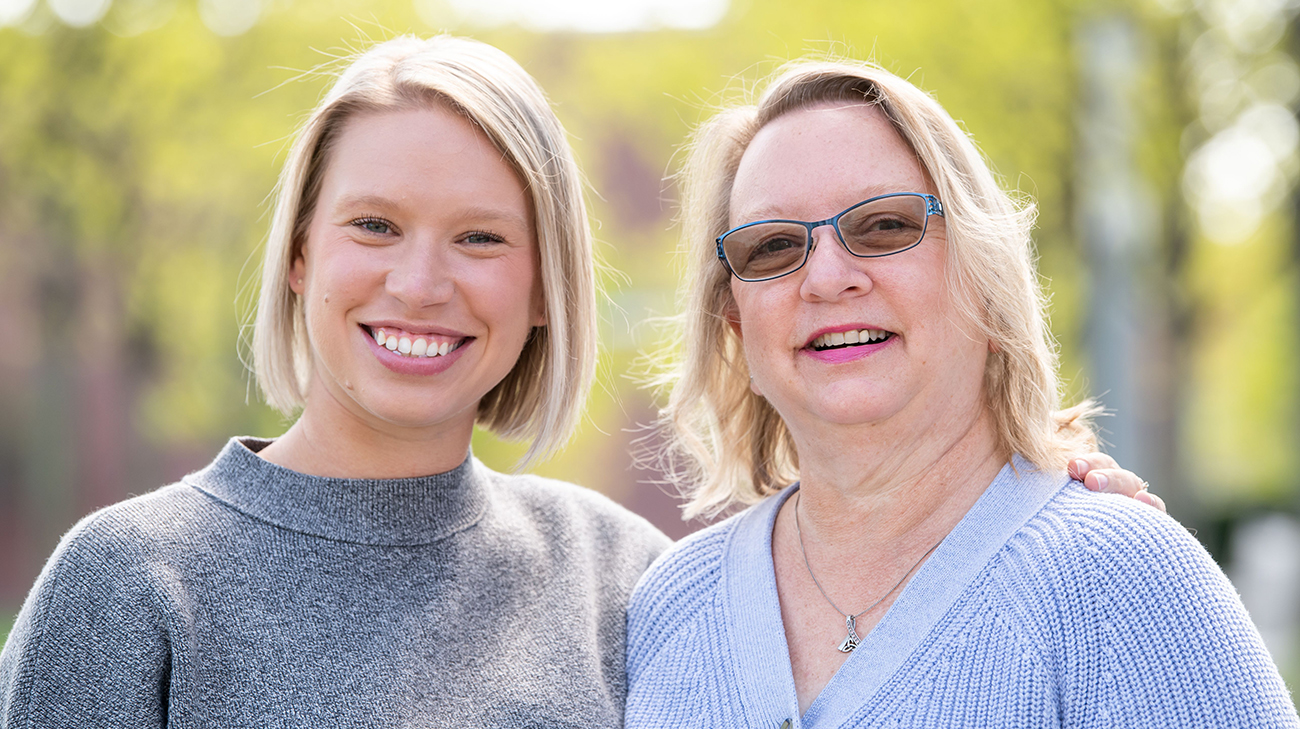
Looking back, Michelle Kovach recalls feeling like a ticking time bomb, thinking it was not a matter of if she was going to get breast cancer but when. That’s because at just 19 years old, a genetic test showed she had a 70 percent chance of getting breast cancer in her lifetime. Michelle and her mom, Sharon Kovach, have always had the disease on their radar because their family history of it dates back for generations.
“I was very aware of my situation because my grandmother had it back in the 1950s. My mom had it in the 1970s. She passed away within a year after I graduated from college at 56 years old,” says Sharon.
Following an abnormal mammogram, Sharon herself was diagnosed with breast cancer a month after her 40th birthday in October 1999. Sharon says she didn’t have any symptoms and attributes catching the disease early because she was aware of her family history and took early precautions.
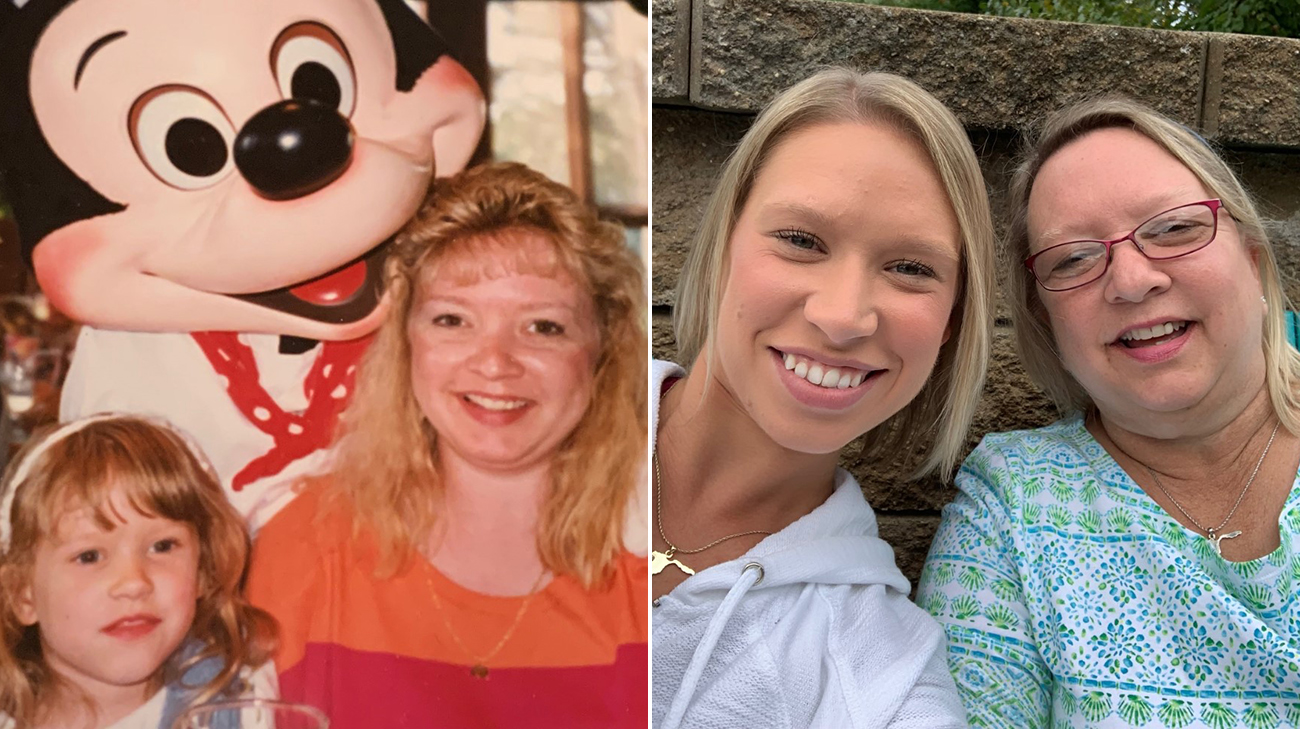
Michelle and her mom, Sharon, have had breast cancer on their radar because of how far back their family history dates with the disease. (Courtesy: Sharon Kovach)
For treatment, Sharon decided to have a mastectomy. She was in the clear for four years after the procedure until she felt a lump during a breast self-exam. A biopsy later confirmed her cancer was back.
“I couldn't believe it,” says Sharon. “I felt I had done everything I could with the first surgery. That's why I had the mastectomy. I was devastated.”
After her mastectomy, Sharon started seeing Halle Moore, MD, the director of breast medical oncology at Cleveland Clinic Taussig Cancer Institute, and Machelle Moeller, CNP. Sharon says they guided her through her second round of treatment in 2003, which included surgery to remove the tumor and six months of chemotherapy and radiation. Sharon, now 63 years old, has been in remission ever since.
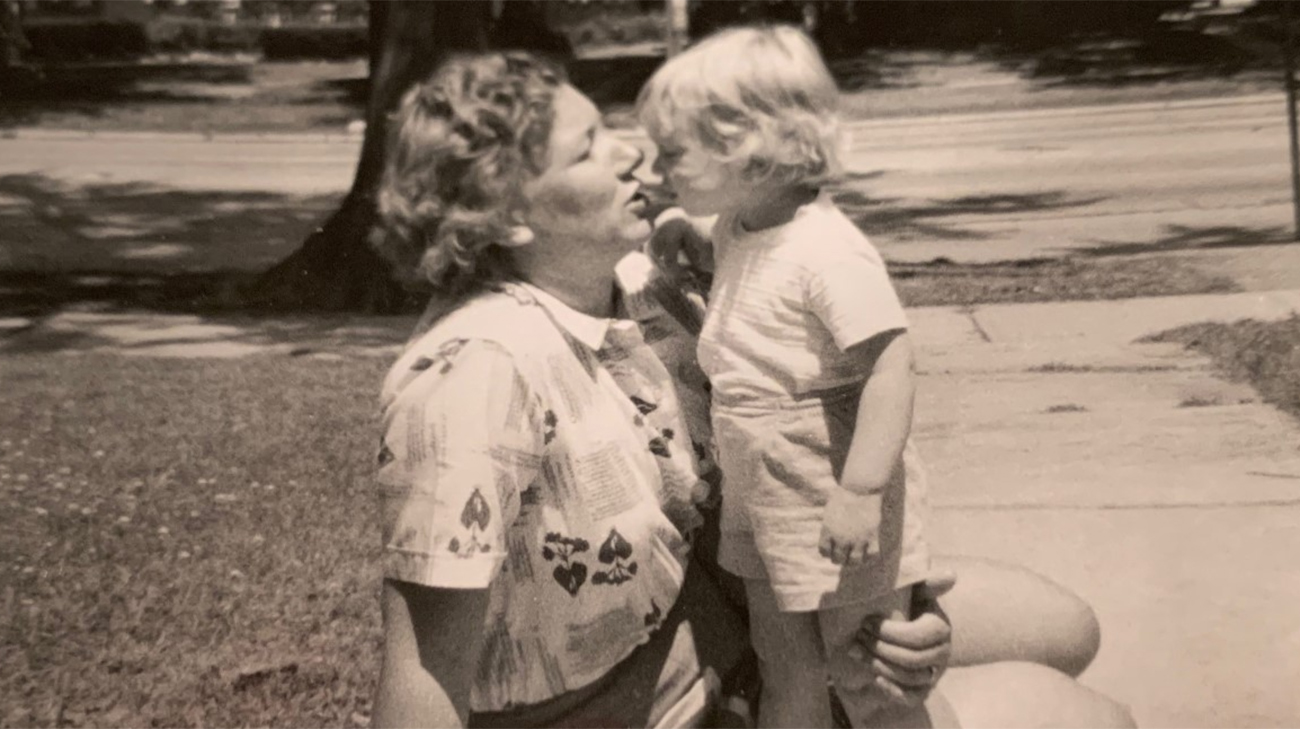
Sharon and her mother, Phyllis Flynn. Sharon's mother and grandmother had breast cancer. (Courtesy: Sharon Kovach)
With such a strong family history of the disease, Michelle underwent a BRCA gene test while in college in 2009. The test identifies changes in your BRCA1 or BRCA2 genes. Abnormal changes or mutations to your BRCA genes increase your risk of breast cancer as well as ovarian and other cancers. The testing showed Michelle had a BRCA mutation and her geneticists referred her to Holly Pederson, MD, the director of medical breast services at Cleveland Clinic.
“We always hear one in eight women will get breast cancer in their lifetime. That equates to a 12 to 13% lifetime risk for an average woman with the median age of diagnosis being 62,” explains Dr. Pederson. “For women who carry a BRCA mutation, the lifetime risk is 70% with a 30 to 40% risk of getting breast cancer before the age of 50.”
Knowing the statistics, Michelle says she immediately wanted a preventative mastectomy. However, Dr. Pederson explained the risk of developing breast cancer is extremely low under the age of 30, even with a BRCA mutation. Dr. Pederson recommended holding off on any risk-reducing surgery because Michelle was so young at the time.
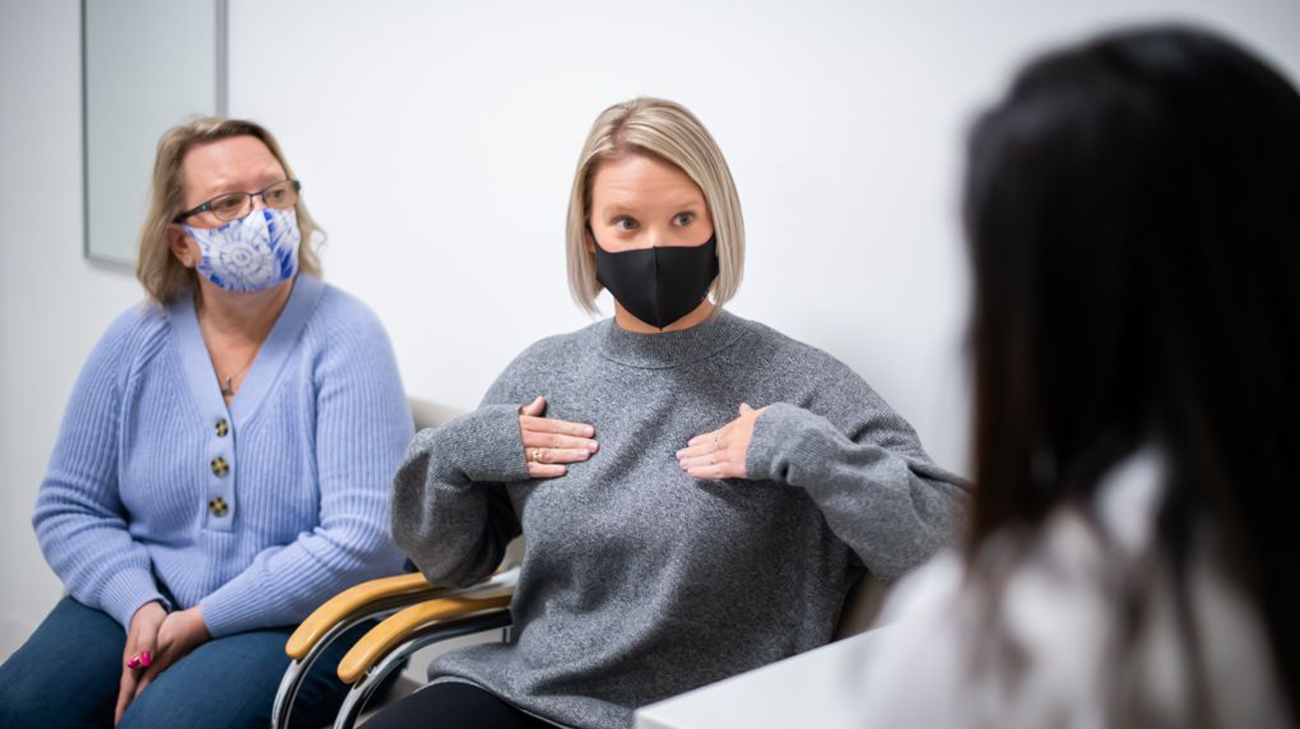
Michelle and Sharon during Michelle's follow-up appointment with breast surgeon Stephanie Valente, DO. (Courtesy: Cleveland Clinic)
“Dr. Pederson told me that maybe when you're 30, it's a better time to consider a mastectomy. She encouraged me to take some time to really think about it and make sure I was in the right headspace to go through the procedure, which was very helpful. I truly appreciate her,” says Michelle.
For the next ten years, Dr. Pederson kept a close eye on Michelle through screenings twice a year and established her in the Hereditary High-Risk Breast Cancer Care Clinic.
“I followed her from age 20 to 30,” says Dr. Pederson. “She also got to meet with the surgeon, plastic surgeon and breast psychologist, which is part of our preoperative team.”
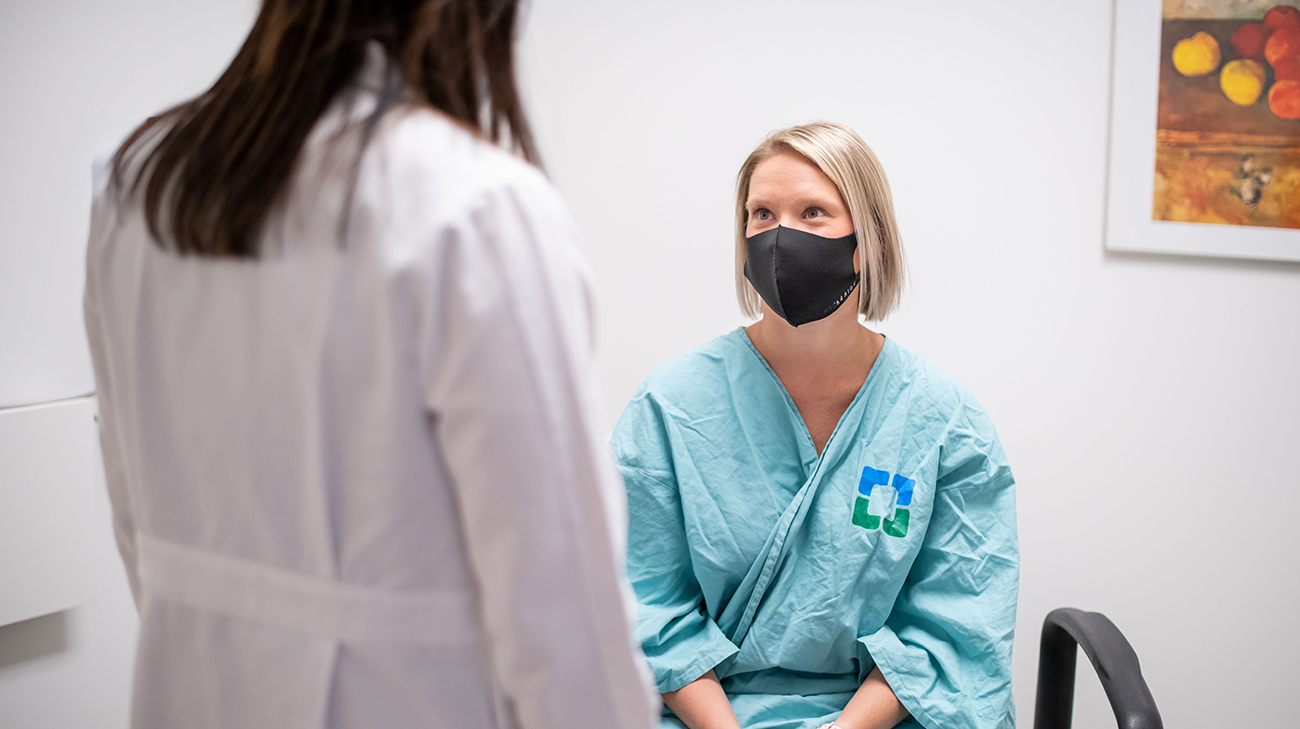
In November 2021, Michelle underwent a preventative double mastectomy. (Courtesy: Cleveland Clinic)
Dr. Pederson recalls Michelle never missed an appointment all those years, even as she graduated college and became a 2nd-grade teacher in the Columbus, Ohio, area. In November 2021, Michelle decided to get a preventative double mastectomy. The procedure reduced her risk for breast cancer by 90 to 95%.
“After I came out of my surgery, I felt like I had done everything I could. I decreased my risk so much that I don't have that concern like I used to. It was a huge weight off of my shoulders. I was so thankful for Dr. Pederson for getting me to where I was,” says Michelle.
With Michelle teaching in Columbus and Sharon enjoying her retirement in Cleveland, they both love coming together at their family lake house to catch up. They continue to share their story to encourage others to take advantage of the medical advancements for breast cancer.
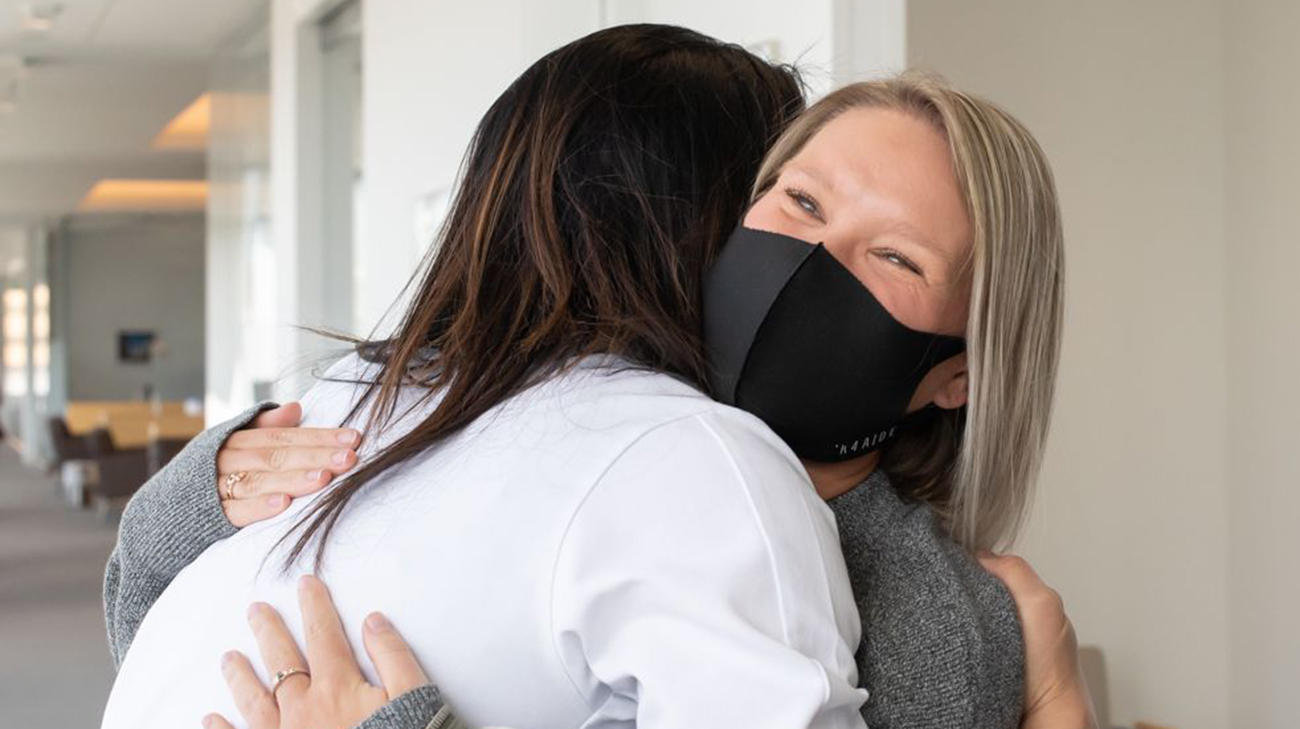
Undergoing a preventative mastectomy has given Michelle peace of mind. (Courtesy: Cleveland Clinic)
“I want to let people know that yes, it's scary and some things are hard, but I don't regret any of the choices I made,” says Michelle. “Since my mastectomy, I don't feel like I have that ticking time bomb where I'm waiting for something negative to happen. I just want other people to know that this is a choice you have.”
“You have to take matters into your own hands. You can't just sit and wait,” explains Sharon. “I know some women who don't want to go for mammograms or anything. You have to take advantage of the tests and medicine out there. There's no reason not to do self-exams or get mammograms.”

Michelle and Sharon encourage women to be aware of their family history and get their mammograms. (Courtesy: Cleveland Clinic)
Dr. Pederson adds it’s crucial to know your family history when it comes to breast cancer and keep your health care provider updated. She stresses patients have more options than ever to prevent and treat breast cancer.
“I encourage young women to update their family history every time they go to their OB-GYN to make sure they aren't missing anything. The earlier we catch breast cancer, the better the chances for survival. There are so many improved treatments and screening methods. Options for high-risk patients include risk-reducing surgery like Michelle had, but certainly, screening at a younger age, which can lead to early detection, is another viable option,” says Dr. Pederson.
Related Institutes: Cleveland Clinic Cancer Center

